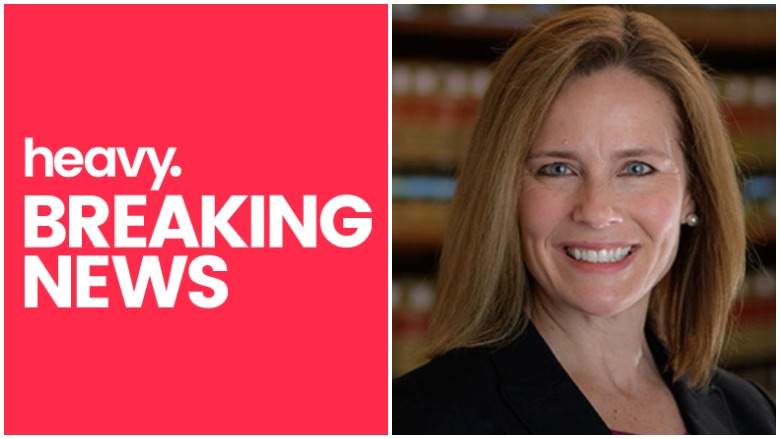
Amy Coney Barrett is rumored to be one of President Donald Trump’s top picks for the Supreme Court replacement for Justice Anthony Kennedy. Here’s what we know so far about her views on gay marriage and LGBTQ rights.
Many of Barrett’s opinions aren’t known too well at this point. She only became a judge in October 2017. She was confirmed as a judge on the Seventh Circuit Court of Appeals on October 31, 2017. Prior to that, she was a professor of law at the University of Notre Dame from 2002 to 2017. In her time on the 7th Circuit Court of Appeals, she’s authored eight majority opinions and one dissent.
In October 2017, Lambda Legal sent a letter to Charles Grassley and Dianne Feinstein, asking them to oppose Barrett’s nomination. This letter was based, in part, on Barrett’s signing a letter from October 2015 written to the “Synod Fathers from Catholic Women.” This letter read, in part, “We give witness that the Church’s teachings … on marriage and family founded on the indissoluble commitment of a man and a woman … provide a sure guide to the Christian life…”
The letter also talked about the importance of protecting the poor, along with a number of other issues. But some have expressed concern on whether her personal beliefs regarding marriage might bleed into her rulings. At this point in time, it’s really not known if her personal beliefs could affect her rulings, since she has had so few rulings as a Seventh Circuit judge. And so far, none of her opinions have addressed the question of gay marriage or LGBTQ rights.
The Lambda Letter went on to point out that in 2017, she was asked if any landmark LGBT decisions would count as “superprecedents.” (She had said “no serious person would propose to undo (superprecedents) even if they are wrong.”) She said she had “not undertaken an independent analysis of whether any particular case qualifies as superprecedent.” This caused some people in the LGBT community to express concern that she might not be against the possibility of undoing the Supreme Court’s decision on gay marriage, for example. She has not spoken specifically on this question since, only to say she needed to analyze the question more.
Barrett also once gave a lecture that was paid for by the Alliance Defending Freedom, which Lambda Legal states is “arguably the most extreme anti-LGBT legal organization in the United States.” However, Barrett later said during her confirmation hearing that she had not vetted the group and, although she was aware in general that they supported traditional marriage, she didn’t inquire into whether they were trying to end same-sex marriage.
It’s unclear how Barrett would rule in LGBT cases or what her opinion would be in cases involving gay marriage. She co-authored a paper titled “Catholic Judges in Capital Cases,” which explored the dilemma Catholic judges may face in capital death cases that run against their own religious beliefs. The paper argued that merely identifying a judge as Catholic isn’t enough for recusal, but Catholic judges might find it “morally impossible” to enforce capital punishment in cases such as sentencing. In those situations, it might be better for them not to participate. The paper concluded: “Catholic judges must answer some complex moral and legal questions in deciding whether to sit in death penalty cases. Sometimes (as with direct appeals of death sentences) the right answers are not obvious. But in a system that effectively leaves the decision up to the judge, these are questions that responsible Catholics must consider seriously. Judges cannot-nor should they try to-align our legal system with the Church’s moral teaching whenever the two diverge. They should, however, conform their own behavior to the Church’s standard. Perhaps their good example will have some effect.”
From that paper, at least, it appears that she might not try to conform her legal opinions to her religious beliefs if they diverged. However, she might step back and recuse herself if she felt a legal decision conflicted with her religion. She has not addressed that question directly, however, but her paper indicates she might lean in that direction. There is still a lot to learn about Amy Coney Barrett’s views on gay marriage and LGBTQ rights, and hopefully she will more specifically address questions about those views in the coming days.